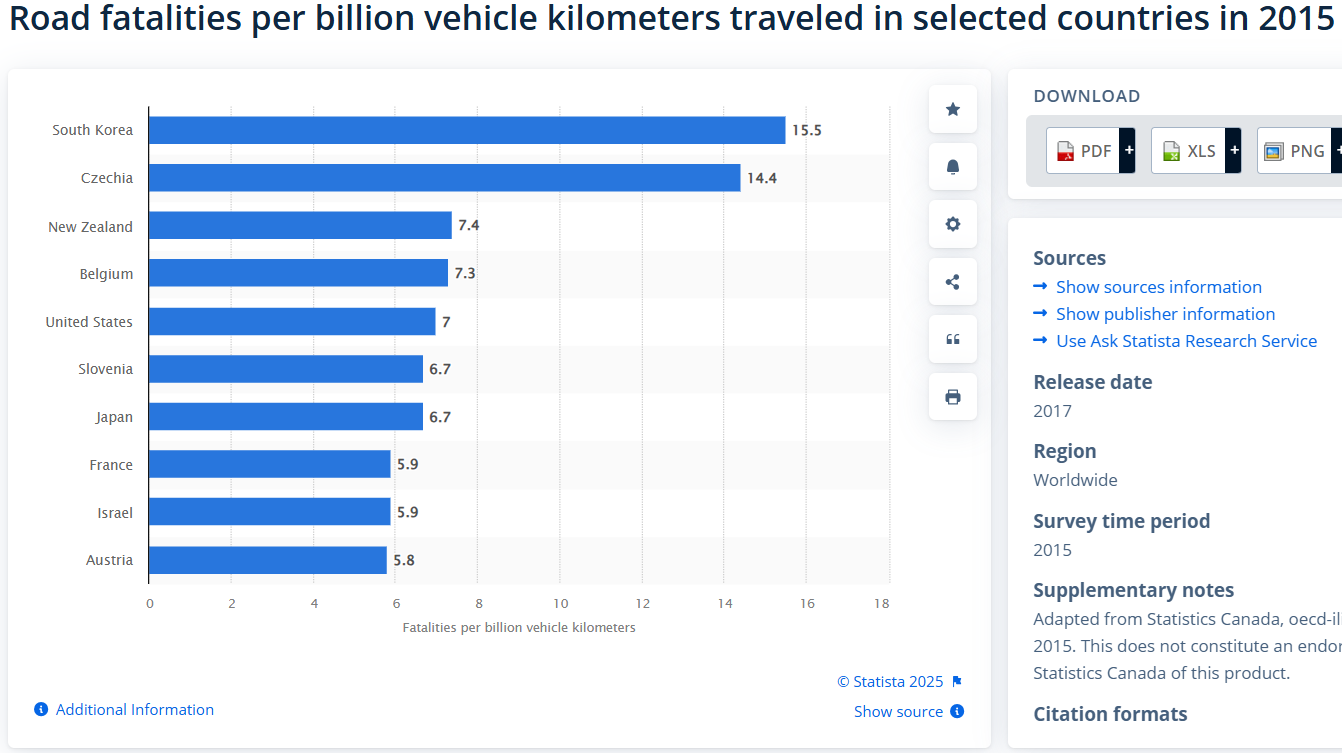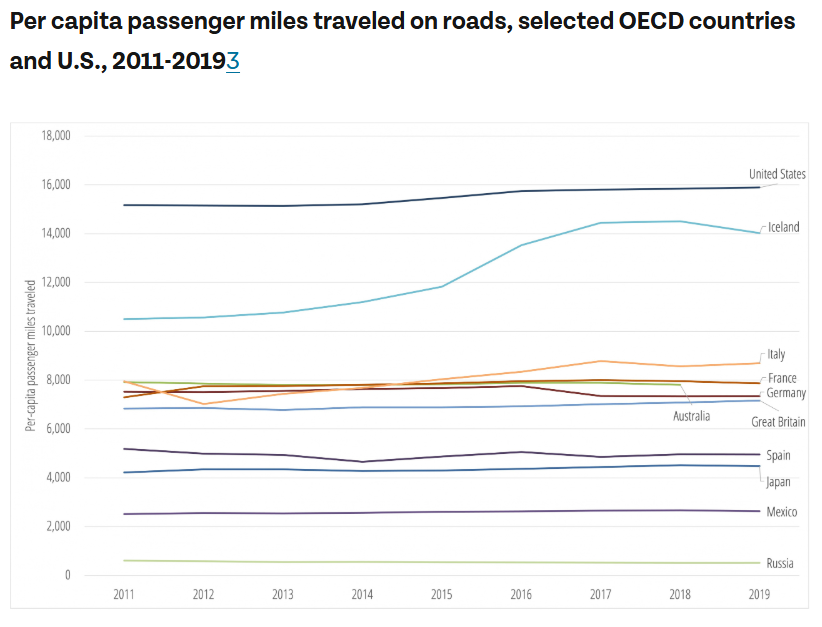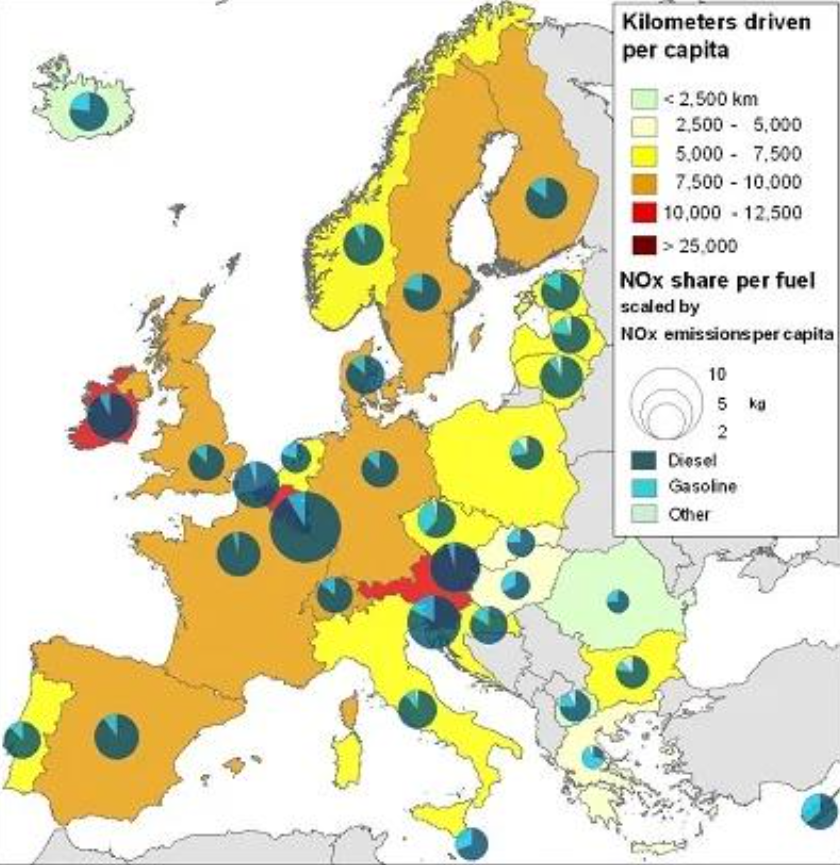And the actual statistic is (or would be) the number of traffic fatalities, enumerated by cause (see below).
Of course, it's hard to draw lines of connection between licensing requirements and a particular fatal crash: even the most carefully vetted driver will not be at their best when drunk, sleepy, distracted. And an untrained, unlicensed driver will likely go through life without getting in a fatal crash.
Sometimes, one can connect poor vehicle maintenance (brakes!) with a crash. But perfect cars crash too, and it seems likely that most under-maintained vehicles fail in non-fatal ways. Back now from mere thoughts to statistical data.
https://www.nhtsa.gov/risky-driving/drunk-driving
According to the NHTSA, in 2022, 13,524 U.S. car crash deaths were deemed alcohol-related. That year, 12,151 deaths involved
speeding. 3,308 from
distracted driving. There could be some overlap there. Only
693 from sleepiness btw. (Euro-note: the
ETSC estimates that 25% of traffic deaths in Norway are caused by drunk drivers.) These are not comprehensive statistics, but they illustrate that thinking about stuff isn't often as valuable as gathering data. OK, back to licensing and maintenance.
U.S. car culture includes the notion that driving
is freedom, and that freedom is the most basic right. So we don't make it hard to get
or keep a license. And our governments don't do much to ensure cars stay well-maintained. There are some emissions tests in my state. And I had to get my car inspected when I moved to Maryland. Raising these bars would no doubt prevent some deaths.
During the pandemic, my dad (born in 1929) renewed his driver's license by mail. To his great amusement, he had to promise, on penalty of perjury, that he could see well enough to drive. They renewed his license until age 101! Happily, my sister persuaded him to give up his car before anything bad happened.
Given the mayhem on U.S. roads, self-driving (electric) cars should make things better in the U.S. I suspect that's also true in places with better control over who drives and what they drive.





